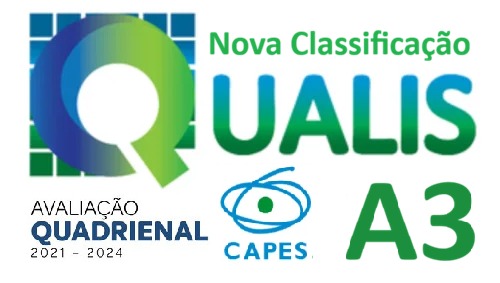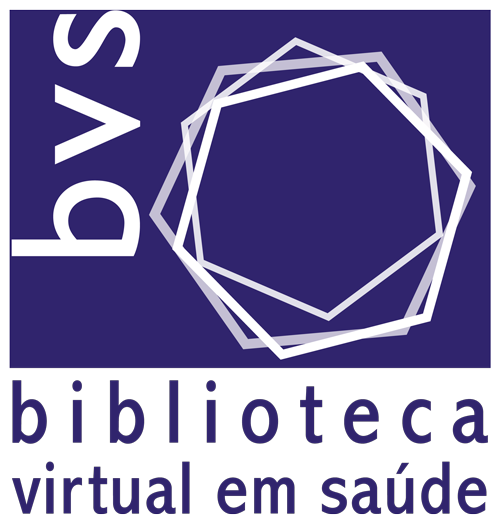Application of the piecewise constant function approximation method to modified point kinetics
DOI:
https://doi.org/10.15392/2319-0612.2024.2588Palabras clave:
reactivity, point kinetics, PCA, relaxation timeResumen
This work uses the numerical method known as Piecewise Constant Approximation, PCA, to solve the equations of modified point kinetics for six groups of delayed neutron precursors. The modified point kinetics corresponds to the point kinetics model without considering the approximation for the derivative of the logarithm of the neutron current. Applying the PCA method approximates the reactivity function to continuous piecewise functions, and the resulting system of first-order differential equations can be solved exactly in each time partition. For validation, numerical simulations are carried out for the cases of constant reactivity, step type and time-varying reactivity, ramp type, and the results are compared with those obtained by the finite difference method. Quantitative analysis of the results shows that the PCA method can efficiently obtain good results for modified point kinetics.
Descargas
Referencias
DUDERSTADT, J. J.; HAMILTON, L. J. Nuclear Reactor Analysis. New York, US: John Wiley & Sons, 1976.
BROWN, H.D. A general treatment of flux transients. Nuclear Science and Engineering, 2, p. 687-693, 1957. DOI: https://doi.org/10.13182/NSE57-A25436
AKCASU, Z. General solution of the reactor kinetic equations without feedback. Nuclear Science and Engineering, 3, p. 456-467, 1958. DOI: https://doi.org/10.13182/NSE58-A25482
HANSEN, K.F., Koen, B.V., Little, W.W. Stable numerical solutions of the reactor kinetics equations. Nuclear Science and Engineering, 22, p. 51-59, 1965. DOI: https://doi.org/10.13182/NSE65-A19762
HAYASAKa, H., Takeda, S. Study of neutron wave propagation. Journal of Nuclear Science and Technology, 5, p. 564-571, 1968. DOI: https://doi.org/10.1080/18811248.1968.9732515
GOLDSTEIN, R., SHOTKIN, L.M. Use of the prompt-jump approximation in fast reactor kinetics. Nuclear Science and Engineering, 38, p. 94-103, 1969. DOI: https://doi.org/10.13182/NSE69-A19513
DA Nobrega, J.A.W. A new solution of the point kinetics equations. Nuclear Science and Engineering, 46, p. 366-375, 1971. DOI: https://doi.org/10.13182/NSE71-A22373
HETRICK, D.L. Dynamics of Nuclear Reactors. Chicago, US: The University of Chicago Press, 1971.
KANG, C.M., HANSEN, K.F. Finite element methods for reactor analysis. Nuclear Science and Engineering, 51, p. 456-495, 1973. DOI: https://doi.org/10.13182/NSE73-A23278
HENNART, J.P. Piecewise polynomial approximations for nuclear reactor point and space kinetics. Nuclear Science and Engineering, 64, p. 875-901, 1977. DOI: https://doi.org/10.13182/NSE77-A14503
CHAO, Y.A., ATTARD, A. A resolution of the stiffness problem of reactor kinetics. Nuclear Science and Engineering, 90, p. 40-46, 1985. DOI: https://doi.org/10.13182/NSE85-7
GUPTA, H.P., TRASI, M.S. Asymptotically stable solutions of point-reactor kinetics equations in the presence of Newtonian temperature feedback. Annals of Nuclear Energy, 4, p. 203-207, 1986. DOI: https://doi.org/10.1016/0306-4549(86)90027-7
SANCHEZ, J. On the numerical solution of the point reactor kinetics equations by generalized Runge-Kutta methods. Nuclear Science and Engineering, 103, p. 94–99, 1989. DOI: https://doi.org/10.13182/NSE89-A23663
BEHRINGER, K., PIÑEYRO, J., MENNIG, J. Application of the Wiener-Hermite functional method to point reactor kinetics driven by random reactivity fluctuations. Annals of Nuclear Energy, 17, 643-656, 1990. DOI: https://doi.org/10.1016/0306-4549(90)90025-9
BUZANO, M.L., CORNO, S.E., CRAVERO, I. A new procedure for integrating the point kinetic equations for fission reactors. Computers & Mathematics with Applications, 29, p. 5–19, 1995. DOI: https://doi.org/10.1016/0898-1221(94)00245-G
BASKEN, J., LEWINS, J. Power series of the reactor kinetics equations. Nuclear Science and Engineering, 122, p. 407-416, 1996. DOI: https://doi.org/10.13182/NSE96-A24175
KOCLAS, J., SISSAOUI, M.T., HEBERT, A. Solution of the improved and generalized quasistatic methods using an analytic calculation or a semi-implicit scheme to compute the precursor equations. Annals of Nuclear Energy, 23 (14), p. 1127-1142, 1996. DOI: https://doi.org/10.1016/0306-4549(95)00075-5
HASHIMOTO, K., IKEDA, H., TAKEDA, T. Numerical instability of time-discretized one-point kinetic equations. Annals of Nuclear Energy, 27, p. 791-803, 2000. DOI: https://doi.org/10.1016/S0306-4549(99)00092-4
ABOANBER, A.E., HAMADA, Y.M. PWS: an efficient code system for solving space-independent nuclear reactor dynamics. Annals of Nuclear Energy, 29, p. 2159-2172, 2002. DOI: https://doi.org/10.1016/S0306-4549(02)00034-8
KINARD, M., ALLEN, K.E.J. Efficient numerical solution of the point kinetics equations in nuclear reactor dynamics. Annals of Nuclear Energy, 31, p. 1039-1051, 2004. DOI: https://doi.org/10.1016/j.anucene.2003.12.008
HAYES, J.G., ALLEN, E.J. Stochastic point-kinetics equations in nuclear reactor dynamics. Annals of Nuclear Energy, 32, p. 572-587, 2005. DOI: https://doi.org/10.1016/j.anucene.2004.11.009
DULLA, S., NICOLINO, C., RAVETTO, P. Reactivity oscillation in source driven systems. Nuclear Engineering and Technology, 38, p. 657-664, 2006.
CHEN, W.Z., GUO, L.F., ZHU, B., LI, H. Accuracy of analytical methods for obtaining supercritical transients with temperature feedback. Progress in Nuclear Energy, 49, p. 290-302, 2007. DOI: https://doi.org/10.1016/j.pnucene.2007.01.004
NAHLA, A.A. Analytical solution to solve the point reactor kinetics equations. Nuclear Engineering and Design, 240, p. 1622-1629, 2010. DOI: https://doi.org/10.1016/j.nucengdes.2010.03.003
ESPINOSA-PAREDES, G., POLO-LABARRIOS, M., ESPINOSA-MARTINEZ, E., VALLE-GALLEGOS, E. Fractional neutron point kinetics equations for nuclear reactor dynamics. Annals of Nuclear Energy, 38, p. 307-330, 2011. DOI: https://doi.org/10.1016/j.anucene.2010.10.012
NUNES, A. L. A Influência da Aproximação Referente à Derivada da Corrente de Nêutrons nas Equações da Cinética Pontual. Tese de D.Sc., COPPE/UFRJ, Rio de Janeiro, RJ, Brazil, 2015.
ALTAHHAN, M.R., NAGY, M.S., ABOU-GABAL, H.H., ABOANBER, A.A. Formulation of a point kinetics model based on the neutron telegraph equation. Annals of Nuclear Energy, 91, p. 176–188, 2016. DOI: https://doi.org/10.1016/j.anucene.2016.01.011
ESPINOSA-PAREDES, G. Fractional-space neutron point kinetics (F-SNPK) equations for nuclear reactor dynamics. Annals of Nuclear Energy, 107, p. 136-143, 2017. DOI: https://doi.org/10.1016/j.anucene.2016.08.007
HAMADA, Y.M. Modified fractional neutron point kinetics equations for finite and infinite medium of bar reactor core. Annals of Nuclear Energy, 106, p. 118-126, 2017. DOI: https://doi.org/10.1016/j.anucene.2017.03.048
DINIZ, R.C., GONÇALVES, A.C., DA ROSA, F.S.S. Adjusted mean generation time parameter in the neutron point kinetics equations. Annals of Nuclear Energy, 133, p. 338-346, 2019. DOI: https://doi.org/10.1016/j.anucene.2019.05.019
Descargas
Publicado
Número
Sección
Licencia
Derechos de autor 2024 Brazilian Journal of Radiation Sciences (BJRS)

Esta obra está bajo una licencia internacional Creative Commons Atribución 4.0.
Licencia: los artículos de BJRS tienen una licencia internacional Creative Commons Attribution 4.0, que permite el uso, el intercambio, la adaptación, la distribución y la reproducción en cualquier medio o formato, siempre que se otorgue el crédito correspondiente al autor o autores originales y a la fuente, proporcione un enlace a la licencia Creative Commons e indique si se realizaron cambios. Las imágenes u otros materiales de terceros en el artículo están incluidos en la licencia Creative Commons del artículo, a menos que se indique lo contrario en una línea de crédito al material. Si el material no está incluido en la licencia Creative Commons del artículo y su uso previsto no está permitido por la regulación legal o excede el uso permitido, el autor deberá obtener el permiso directamente del titular de los derechos de autor. Para ver una copia de esta licencia, visite http://creativecommons.org/licenses/by/4.0/



























